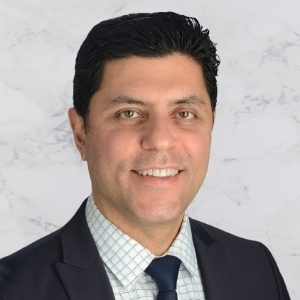Title : Immunosuppressive medications did not increase the risk of severe COVID-19 in solid organ transplant recipients diagnosed with SARS-CoV-2 infection
Abstract:
Due to conflicting data, it remains unclear whether immunosuppressive medications increase the risk of progression to severe COVID-19 disease in Solid Organ Transplant (SOT) recipients. Most of the available outcome data does not suggest a higher mortality rate in the SOT population. Even though immunosuppressive medications might be associated with worse outcome, its immunomodulatory effect might be beneficial.
Methods: We conducted a retrospective case-control study of SOT recipients diagnosed with COVID-19 at the University of Kansas Medical Center between January 1, 2020 and December 31, 2022. Severe COVID-19 was defined as development of hypoxia while the patient is on room air during a 21-day period after the COVID-19 diagnosis was established. We fit a logistic regression model with severe COVID-19 as the response variable and adjusted for prescription of mycophenolate, tacrolimus and prednisone and a set of covariates. To evaluate the effect of dose changes after the diagnosis of COVID-19 on the odds of developing severe COVID-19, we subset our data based on whether patients were taking mycophenolate (n = 448), tacrolimus (n = 536) or prednisone (n = 386) at the time of diagnosis. Within each subgroup, we fit a logistic regression model with severe COVID-19 as the response variable and adjusted for the relevant immunosuppressant and a set of covariates.
Results: In our SOT population, 569 patients were diagnosed with COVID-19 (457 kidney, 73 liver, 54 heart, 43 pancreas, and 8 lung recipients). The median patient age was 53 years, 59% were male, and 70% were white. Severe COVID-19 disease developed in 127/569 (22.3%) patients. A total of 58/570 (10.2%) patients died. A multivariable analysis showed that age (OR = 1.04; p < 0.001), white race (OR = 0.54; p = 0.01), body-mass index (OR = 1.04, p = 0.04), heart disease (OR = 1.84, p = 0.01), chronic lung disease (OR = 1.93; p = 0.04), lack of prior COVID-19 vaccination (OR = 2.05; p = 0.01), and not receiving monoclonal antibodies (OR = 3.79; p < 0.001) were associated with severe disease. Being on treatment with mycophenolate, tacrolimus, or prednisone at the time of COVID-19 diagnosis was not associated with severe disease.
After adjusting for other covariates, a mycophenolate dose-reduction was not associated with progression to severe COVID-19. Similarly, tacrolimus dose reduction did not increase the risk of severe COVID-19. An increase or a decrease of prednisone dose was not associated with severe COVID-19.
Conclusion: Overall mortality in our SOT population was 10%. Patients receiving mycophenolate, tacrolimus, or prednisone at the time of COVID-19 diagnosis were not more likely to experience severe disease. Furthermore, the reduction of mycophenolate or tacrolimus dose when a SOT patient is diagnosed with COVID-19 was not associated with severe disease.
Audience Take Away:
- The presentation will be useful to clinicians managing solid organ transplant recipients diagnosed with COVID-19
- The presentation will provide guidance about management of immunosuppression in solid organ transplant recipients diagnosed with COVID-19
- Yes, additional data in this area are needed to fully understand the impact of immunosuppression on COVID-19 outcome



